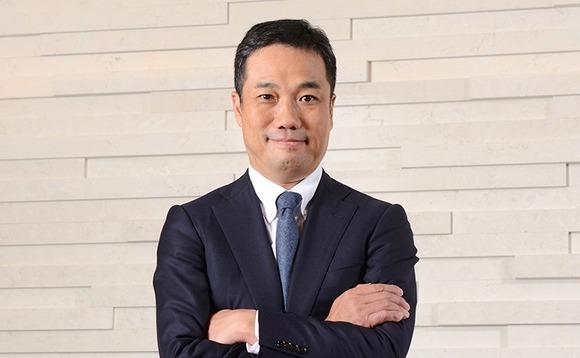
Fund focus: Advantage moves fast, scales up

Japan’s Advantage Partners deployed Fund VI faster than expected and only some LPs wanting to delay commitments for budgetary reasons prevented a swift final close on Fund VII
Two-and-a-half years and 11 buyouts after closing its sixth Japan buyout fund, Advantage Partners returned to market last September – somewhat earlier than expected – seeking JPY 120bn (USD 879m) for Fund VII. A final close came in April at the hard cap of JPY 130bn.
"The only bottleneck for us is people. We see so many opportunities. We haven't participated in many auction processes – most of the deals are exclusive or semi-exclusive – and our win ratio has been quite high. This meant we deployed Fund VI very efficiently and effectively," said Shinichiro Kita, a senior partner responsible for the firm's buyout strategy.
Private equity activity in Japan has remained reasonably robust even as other markets have struggled. The USD 27.2bn deployed in 2022 represented a relatively small decline from the record USD 30.9bn put to work in 2021. Moreover, investment for 2023 to date stands at USD 21.7bn.
Large-cap deals – notably the USD 15bn privatisation of Toshiba Corporation announced in March – are a key contributing factor. But deal flow was strong in the middle market space occupied by Advantage: approximately 200 buyouts were announced in 2021 and 2022, and transactions of USD 1bn or more accounted for just one out of every 20.
Advantage has maintained a consistent investment pace over the past fund cycle, closing three deals in 2020 and four apiece in 2021 and 2022. There were five corporate carve-outs, three founder succession transactions, two sponsor-to-sponsor deals, and one management buyout.
Kita doesn't necessarily expect one transaction type to dominate the coming cycle. If there is a unifying theme, it's a recognition on the part of owners that they need external partners to generate growth in a typically low-growth market. A wider appreciation of the role private equity can play in this may spur sponsor-to-sponsor opportunities.
"There are a lot more private equity-owned companies in Japan compared to 10 years ago. In addition, the IPO markets are weak, so many companies are waiting for them to reopen. Some GPs need to show distributions to LPs, so they have already decided to sell to strategics or private equity," Kita said.
Meanwhile, the Tokyo Stock Exchange recently instructed listed companies with price-to-book ratios of less than 1.0 to publish detailed plans for improving performance and using capital more efficiently. With activist investors already hounding boards over perceived sub-par returns, it is suggested this measure could lead to more take-private situations – although these are seldom straightforward.
"Management teams should consider all the options, not just going private, and also how to explain their decisions to their employees and shareholders. There are a lot of complex issues around these processes. For example, activist investors are increasingly putting pressure on management teams. Sometimes this helps companies go private, and sometimes it doesn't because investors want a higher price," said Kita.
While the accelerated timing of the fundraise might be interpreted as a positive sign in terms of deal flow, it wasn't altogether convenient. First, Japan was largely closed to visitors until late 2022, which impeded on-site due diligence.
Second, the final close was delayed until April so some Japanese LPs could utilise budgets for the current financial year. Most of the capital came into a first close of JPY 100bn in December – roughly coinciding with a foreign exchange low point when the yen reached JPY 150 to the US dollar. Allocation requests from overseas LPs, when converted into yen, were much higher than when the fund launched.
"With the increase in fund size, we expected to admit more LPs than we were ultimately able to," said Kita, adding that almost all investors, foreign and domestic, were cut back. There was space for only a handful of new relationships. The foreign-domestic split remains around 50-50.
The broader picture of continued investor interest in Japan-focused funds is encouraging, but Advantage is mindful of the liquidity challenges facing many GPs region-wide. A first exit from Fund VI came in February with the sale of dentistry equipment distributor Dental Holding, and the firm is keen to further reduce its stock of existing investments, which currently stands at 24.
"When we invest, we must think carefully about who a potential buyer in three or four years would be, and what we should be doing during the investment period to generate interest among strategic investors," said Kita.
"With Dental Holding, we took a primarily catalogue-based company, increased the percentage of sales through e-commerce and introduced capabilities around digital marketing. The ultimate buyer saw significant cross-selling opportunities with the company's dental products-focused customer base."
Latest News
Asian GPs slow implementation of ESG policies - survey
Asia-based private equity firms are assigning more dedicated resources to environment, social, and governance (ESG) programmes, but policy changes have slowed in the past 12 months, in part due to concerns raised internally and by LPs, according to a...
Singapore fintech start-up LXA gets $10m seed round
New Enterprise Associates (NEA) has led a USD 10m seed round for Singapore’s LXA, a financial technology start-up launched by a former Asia senior executive at The Blackstone Group.
India's InCred announces $60m round, claims unicorn status
Indian non-bank lender InCred Financial Services said it has received INR 5bn (USD 60m) at a valuation of at least USD 1bn from unnamed investors including “a global private equity fund.”
Insight leads $50m round for Australia's Roller
Insight Partners has led a USD 50m round for Australia’s Roller, a venue management software provider specializing in family fun parks.








